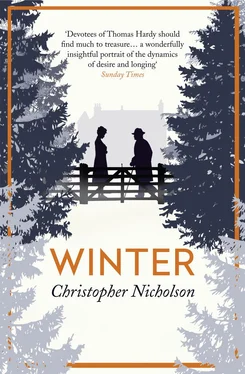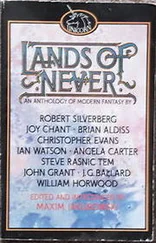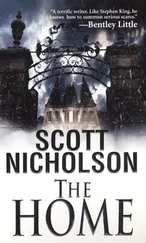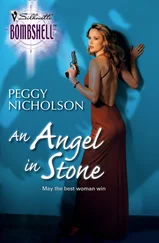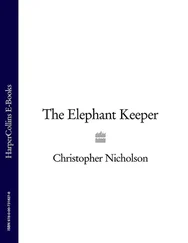I am not suggesting that all the trees should be cut down, merely that those nearest to the house should be thinned. Is that so much to ask? To thin the trees so that light, blessed light, will once again shine freely into the rooms? Was this not his intention when he built the house, forty years ago? The house faces south; it should be filled with sunlight, and yet it is dark. But there is nothing to be done, until later; later, later, it is what he always says; and so the matter is forever postponed, and meanwhile the trees grow ever nearer. The branches are nearly scratching at the panes of the windows, and the gutters are blocked with autumn leaves, and the chimneys are covered in ivy. The air is damp. Even the lawns are affected: they are thick with moss and ugly worm-casts.
I cannot feel that trees are necessarily friendly creatures. In the right situation, I admit, they are pleasant enough. Here they are hostile. Left alone, they will overwhelm the house. This is how I choose to begin my account, which I tell to myself, since there is no one else to tell.
I am busy, too; I have my daily round of tasks. There are the hens to let out of their coop. They have a little field to the side of the garden, away from the trees, in sunshine. I bought this field with my own money, four years ago, since he would not buy it, although he has so much more money than I, although he may well be, according to Cockerell, the wealthiest writer in the entire country. Is that possible? How does Cockerell know? I waited to see if he would offer to buy the field for me, but it did not seem to occur to him. If it did occur to him, he gave no sign of it having occurred to him. I might have asked him directly, but I have my pride. Thus I had to raid my own small savings. That is how things are. That is the way of things.
I open the door of the coop and out they come; seven lovely hens. ‘My beauties, my darlings. How are you today?’ I love my hens and I talk to them in a particular voice which I persuade myself – with what truth I cannot say – they recognise. O, but I am sure that they do. I have names for them all. This is Betty; this is Jess; that is Hetty. Dear little Hetty! That one is Maud.
In the low sunshine they glow with light. Their feathers shimmer. ‘Patience, patience,’ I say to them, ‘patience, my dears.’ They fuss and cluck as I hold up the bag of grain, and then I dip in my hand and throw out the seed. They make a quick rush and begin to peck and stab, and as they do so wheedling sounds of gratitude come from their throats. Even when they are eating! How sweet and contented they are!
It does me good to see such contentment, I who feel so little contentment. It does me good to be in the sun, away from the long shadows of the trees.
I scatter four handfuls of grain. Some of the hens – Betty, and Alice, particularly, are bigger and more forceful than the others. Please, please, I beg you, be patient! I have enough for you all.
They are laying well at the moment. Yesterday, I collected three brown eggs; today, three more, which will do very well for this evening’s dinner. I admit that there are times when I think that I should be kind and allow them to keep their eggs, to sit on their eggs. Would that be kinder? But the eggs would not hatch, there would be no chicks, they would sit and sit and nothing would happen, which would be dreadful for them, they would be perpetually disappointed. I think it is better that I take the eggs, to spare them that disappointment. They are fond of me, they do not care whether I take the eggs.
The sun shines over the field, the birds sing – O, I admit, my ownership of the field does afford me a certain satisfaction, for almost everything else is his. The house and its contents belong to him; they were his long before I became his wife. I live in the shell of his ownership. The field is mine, however, and therefore perhaps, upon further consideration, I am glad that I bought it with my own money, that he did not buy it for me. Yes, I am glad, I think, although I would have liked him to have offered to buy it for me, as he might easily have done. I am not saying that he is miserly but, if I may draw the distinction, he is very careful; he does not realise how much money he has and does not believe it, even when he is told. He avoids conversations about money, just as he avoids conversations about the trees. These are not matters I am able to talk to him about, among so many other matters.
Obstinacy is ingrained into his very nature. It blinds him to common sense. It makes him deaf to all persuasion. Was he always like this, or has his obstinacy grown over the years? He cannot have been like this as a young man. But then, how do I know? I did not know him when he was young. Even though I have seen a number of paintings and photographs, to relate the young man there with the old man now defeats me. Inasmuch as I am able to imagine it, he was exactly the same then as he is now.
To give one instance of his obstinacy: the telephone. I could not understand the nature of his objection, although it seemed to be based on some irrational fear of the instrument. He murmured vaguely: ‘Human beings have succeeded in communicating for centuries without the use of a telephonic apparatus; I do not understand why it must suddenly become a necessity.’ – ‘Thomas,’ I said, somewhat exasperated, not least by the absurdity of the phrase ‘telephonic apparatus’ in this day and age, ‘of course, it is not a necessity; it is a convenience. It would be very convenient to have a telephone here. It would be convenient for ordering groceries, and coal, and for visitors.’
I went on to say that it was becoming odd for us, in a house this size, not to have a telephone.
‘There would be wires everywhere,’ he said. ‘They are very ugly.’
‘We will soon be used to them,’ I countered.
He became a trifle petulant. ‘Florence, I do not want to be used to them. Merely because the world happens to have moved in a certain direction, it does not follow that we have to move with it. Besides, there is the cost.’ (As if he would even notice the cost, when he is so wealthy! The wealthiest writer in the entire country!)
Later, he said that the press would discover the number and that the telephone would never stop ringing. The noise would be an intrusion and would prevent him from working. ‘And what if it rings in the night?’ he went on. ‘Imagine that; we shall be woken by it ringing and you will hurry out and fall down the stairs and break your neck.’ I did not know whether to laugh or cry. ‘Is that likely?’ I asked. ‘Who on earth is going to ring in the night?’ He gave me a particular look, a look that I have come to know well, intended to convey the message that he was impervious to all argument, however reasonable.
I enlisted the help of Cockerell, when he next came to stay. He always pays greater attention to Cockerell than to me, although I am his wife. I took Cockerell aside and asked him whether he had had a telephone installed at his home in Cambridge, and he said that he had had one for four years and that it had come in jolly handy as it was so much quicker than the post and capable of carrying so much more information than the telegraph. Exactly! ‘Well,’ said I, ‘if you would persuade Thomas, I should be very grateful.’ So he said he would – that is, he would try – ‘But, Florence,’ he said, ‘your husband is a very hard man to bring round, once he has set his mind against something.’ – ‘Sydney,’ said I, ‘he is an ox! He doesn’t like anything new; he would like the world to be as it was in eighteen fifty! The world has changed, like it or not. But, please, don’t tell him that I asked you to say anything; if you do, he will set himself against it on principle. He is so prickly nowadays.’
Читать дальше
